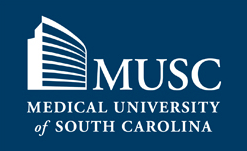MUSC College of Health Professions offers new master’s degree
December 30, 2014Health informatics master’s degree will address shortage of skilled professionals
CHARLESTON, SC – Health care or technology professionals, who have been searching for a way to transition their skill set to health informatics and big data analytics, will now have a significant option for gaining or expanding the skills needed to address a national expertise shortage. In an article examining the impact of big data on the health care system, authors Hersh and Wright (2008) estimated more than 40,000 additional health information technology professionals would be needed nationally.
“The impact of informatics is so central to the future of health care- it’s very far-reaching. This will be a growing field in the years to come and if anything these earlier projections of the workforce shortage, from the vantage point of the current day, underestimate the numbers now needed,” said Robert Steele, PhD., Medical University of South Carolina (MUSC) College of Health Professions (CHP) Health Informatics division director. “Big data is impacting almost everything that determines what we know about our health. So, what do we do with all of this information? We are now becoming capable of spotting disease patterns, evaluating efficacy and influencing health outcomes in a way that is unprecedented, but we need the highly skilled experts out there who can do this work.”
Steele and his colleagues have calculated that between 1,100 and 2,800 full-time equivalent health IT professionals are currently needed in SC hospitals alone, not including other types of health care organizations.
Enter the new MUSC Master of Science in Health Informatics program. Those applying for and seeking this degree will learn how to implement technology in health care, and become fluent in project management and analytics of big data. The program has an executive online format to best accommodate working professionals with only a small on-campus component, and with a degree possible in just four semesters, or just more than one year. Students can enroll full or part-time, and a recent national salary survey found these positions averaged $100,000 per year and often serve as gateways to significantly higher positions within health care administration. There are relatively few such programs available nationally, and a significant differentiator for the MUSC program is an emphasis on analytics competencies.
“Our efforts are in line with a significant national agenda to create a Learning Health System that is digitally based, focused on quality and focused on efficacy. The timing to get into this career path is good because we need a skilled workforce who can keep up with the technology, and they are in high demand,” Steele said. With more than 130 refereed publications, the recipient of numerous nationally competitive research grants and a previous appointment as the Head of Discipline and Chair of Health Informatics at The University of Sydney in Australia, Steele provides extensive research and education expertise in leading the new program at MUSC CHP.
Visit http://academicdepartments.
About MUSC
Founded in 1824 in Charleston, The Medical University of South Carolina is the oldest medical school in the South. Today, MUSC continues the tradition of excellence in education, research, and patient care. MUSC educates and trains more than 3,000 students and residents, and has nearly 13,000 employees, including approximately 1,500 faculty members. As the largest non-federal employer in Charleston, the university and its affiliates have collective annual budgets in excess of $1.7 billion. MUSC operates a 750-bed medical center, which includes a nationally recognized Children’s Hospital, the Ashley River Tower (cardiovascular, digestive disease, and surgical oncology), Hollings Cancer Center (one of 66 National Cancer Institute designated centers) Level I Trauma Center and Institute of Psychiatry. For more information on academic information or clinical services, visit www.musc.edu. For more information on hospital patient services, visit www.muschealth.org.














